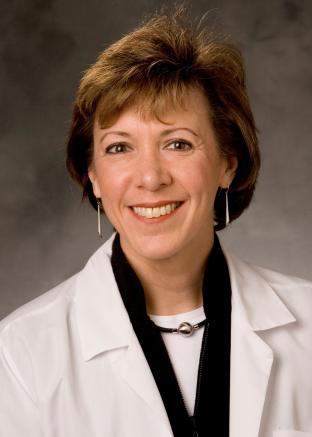Fall 2021 Gastroenterology Board Meeting Summary
November 17, 2021 | Posted by ABIM | ABIM Governance

Jane Onken, MD, Chair
The Gastroenterology Board met virtually on September 27, 2021 to discuss recent and upcoming changes at ABIM, as well as many other important issues facing the discipline. The Specialty Board was joined by Charlene M. Prather, MD, Chair, ABIM Gastroenterology Board Exam Committee.
Below is a summary of the key takeaways from the meeting:
Leadership Update
Richard J. Baron, MD, ABIM President and CEO, joined the Gastroenterology Board to provide members with recent updates, including:
• Reflecting on the spring 2021 Internal Medicine Summit, and how ABIM and specialty societies could collaborate to advance diversity, equity and inclusion (DEI) efforts across internal medicine.
• Sharing reactions to a joint statement issued by ABIM, the American Board of Family Medicine (ABFM), and the American Board of Pediatrics (ABP) cautioning physicians about disseminating misinformation on COVID-19.
• Previewing the Longitudinal Knowledge Assessment (LKA™), slated to launch in January 2022 in 12 specialties.
Gastroenterology Board members spent time discussing social media and how it has the ability to spread misinformation faster than physicians can get accurate information to patients. Dr. Baron noted that spreading misinformation is not a new phenomenon, and that while social media has greatly enhanced its reach, it is not the only factor influencing individuals. He said he is also concerned about the deeper mistrust of authority, including in physicians, that has been growing in the past few years. ABIM is working on ways to improve trust in the profession, and recently sent a survey to all Governance members to better understand their perspectives on misinformation and what ABIM could do to stem its spread.
Liver Biopsy Requirement for Initial Certification in Transplant Hepatology
Gastroenterology Board members continued discussions begun in prior meetings to further consider the American Association for the Study of Liver Disease (AASLD) request to eliminate the requirement for transplant hepatology fellows to perform liver biopsies in order to be eligible for certification in transplant hepatology.
Specialty Board members were provided with preliminary feedback from society and diplomate stakeholder groups, who largely supported removing liver biopsy as a required procedure for transplant hepatology initial certification eligibility. Members and staff engaged in a conversation about asking transplant hepatology program directors whether liver biopsy standards should evolve from a performance standard to an “opportunity to train” standard.
An opportunity to train standard would require:
• training all fellows in the indications, contraindications, risks and benefits of the procedure; and,
• providing the opportunity to train in the procedure to the level of competent and independent performance for those fellows who perceive the need to learn the procedure for their future practice.
Not all fellows would be required to perform the procedure to be eligible for certification. This would be similar to the procedure requirement changes made for internal medicine residents in 2020.
The Specialty Board plans to field a survey to transplant hepatology program directors to inform the best way forward. Once all outreach is complete, the Specialty Board will be asked to make a final decision on the matter, perhaps as soon as the spring 2022 Gastroenterology Board meeting with requirements coming into effect no sooner than the 2022-23 academic year.
Diversity, Equity and Inclusion: Progress Report
Pamela Browner White, Senior Vice President of Communications and Chief Diversity, Equity and Inclusion Officer; Lorna Lynn, MD, Vice President for Medical Education Research and the Staff Administrator for the Board of Director’s Committee on Diversity, Equity and Inclusion; and Weifeng Weng, PhD, Director of Research Analysis, updated the Gastroenterology Board on ABIM’s progress in advancing DEI and becoming an actively anti-racist organization.
Much of this work has been guided by ABIM’s June 2020 Statement on Racial Justice, which states in part:
“As a physician certifying organization, ABIM commits to analyze our programs for potential disparate impact on racial or ethnic minority candidates, be transparent about the results and address any inequity to which we may be contributing.”
Specialty Board members received updates in a number of areas, including:
• An analysis of race and ethnicity data to understand the current diplomate population.
• Development of questions addressing health equity for the LKA. As this work will take some time, these types of questions will not be included in the LKA at launch, and once they do appear will be thoroughly pre-tested to ensure fairness.
• Opportunities for collaboration with specialty societies and other stakeholder groups.
Members discussed the different dimensions of representation going beyond race and ethnicity (gender, sexuality, neurodiversity), and how at every stage of the ‘pipeline’ to subspecialty practice and leadership, there is attrition of marginalized groups for reasons that aren’t well understood. One member offered that further segmenting the limited categories used by the American Association of Medical Colleges (AAMC) is extremely important. It may be a reason the “unknown” category is increasing, they said – e.g., people are getting frustrated with categories that do not appropriately describe their personal identity.
The ultimate goal is to help increase the number of underrepresented individuals in medicine and to find a way for those in medical school to choose gastroenterology as a specialty. Dr. Lynn explained that recruiting should begin before medical school – in middle school to high school – where all students can be encouraged to pursue a career in science.
As ABIM continues this work it will keep the community informed on its progress. More information can be found in a special section of our blog entitled ABIM’s Commitment to Health Equity.
Longitudinal Knowledge Assessment (LKA™) Update
Alison Carey, Senior Director of Engagement and Digital Experience, gave the Specialty Board a preview of the Longitudinal Knowledge Assessment (LKA) platform and updated them about how ABIM has engaged physicians throughout the development process to ensure it will meet their needs and provide a good user experience.
The engagement work included establishing a Physician Advisory Panel of 10 board certified physicians, who met on a monthly basis to share feedback on a variety of areas, such as the LKA assessment platform, communications materials, and other program design elements.
The Panel’s insights were enhanced through regular user-testing sessions, additional physician interviews, surveys and feedback gleaned from diplomate phone calls and emails. In addition, in August 2021, 26 physicians volunteered to serve as beta testers for the LKA platform to help identify bugs and any user experience issues; their feedback resulted in important improvements to the assessment platform prior to launch.
All of this physician feedback also helped generate a comprehensive LKA Physician Journey, outlining physician opportunities and challenges. For example, one challenge identified was that enrolling and participating at the beginning of a physician’s assessment due year is a departure from how many diplomates engage with MOC, and may not be intuitive. To address this challenge, ABIM will communicate clearly through multiple channels, including emails, social media, its website and more to ensure physicians are informed about this new process.
ABIM plans to continue engaging with the community beyond the LKA launch and make improvements based upon physician feedback. All ABIM Board Certified physicians are encouraged to join the Community Insights Network where they may receive occasional requests to share their thoughts about various ABIM programs or topics.
Specialty Board members were excited the LKA will be available in January in gastroenterology, and were interested in making sure it was clearly communicated why the assessment questions had a time limit. They felt diplomates will like the new assessment and believe that the amount of time to respond to the questions will be sufficient for most physicians, while also citing the availability of a time bank if more time is needed for a particular question.
Enrollment for the 2022 LKA opens December 1, 2021 for 12 disciplines, including gastroenterology. The first set of questions will be delivered January 4, 2022 and the quarter ends March 31, 2022, so enrolling early ensures physicians will have enough time to access and answer questions for that quarter. Learn more about its features, benefits, and other important details at abim.org/lka.
Exploring Opportunities to Enhance Trust Between ABIM and the Community
In an effort to continually improve its programs and relationships with the diplomate community, Specialty Board members engaged in an exercise aimed at identifying opportunities to enhance trust between ABIM and the physicians it serves. Insights previously gleaned through Governance member feedback have informed other important changes at ABIM, including advancing DEI initiatives, better accommodations for nursing mothers, and the LKA launching in 2022.
A number of ideas emerged during this session such as promoting the benefit of ABIM certification, financial transparency, and potential collaborations with other groups.
Similar sessions are being held at each ABIM Specialty Board meeting throughout the fall. The top ideas will be presented to the ABIM Council for further consideration of future implementation.
In Closing
he Gastroenterology Board values the feedback and commentary of the entire medical community, including diplomates and society partners.
Do you have any questions? Are you interested in how to get involved?
If you have questions after reading this report, please connect with us through the following channels:
• Subscribe to the ABIM blog
• Call:1-800-441-ABIM (2246)
• Email: request@abim.org
• Join our Governance to help guide our future direction
• Join our Community Insights Network to share your feedback.



